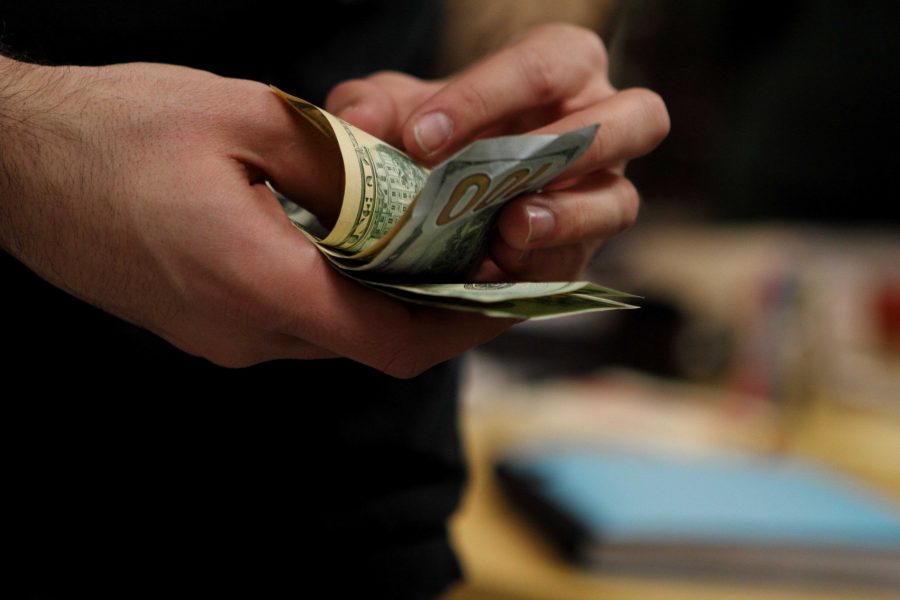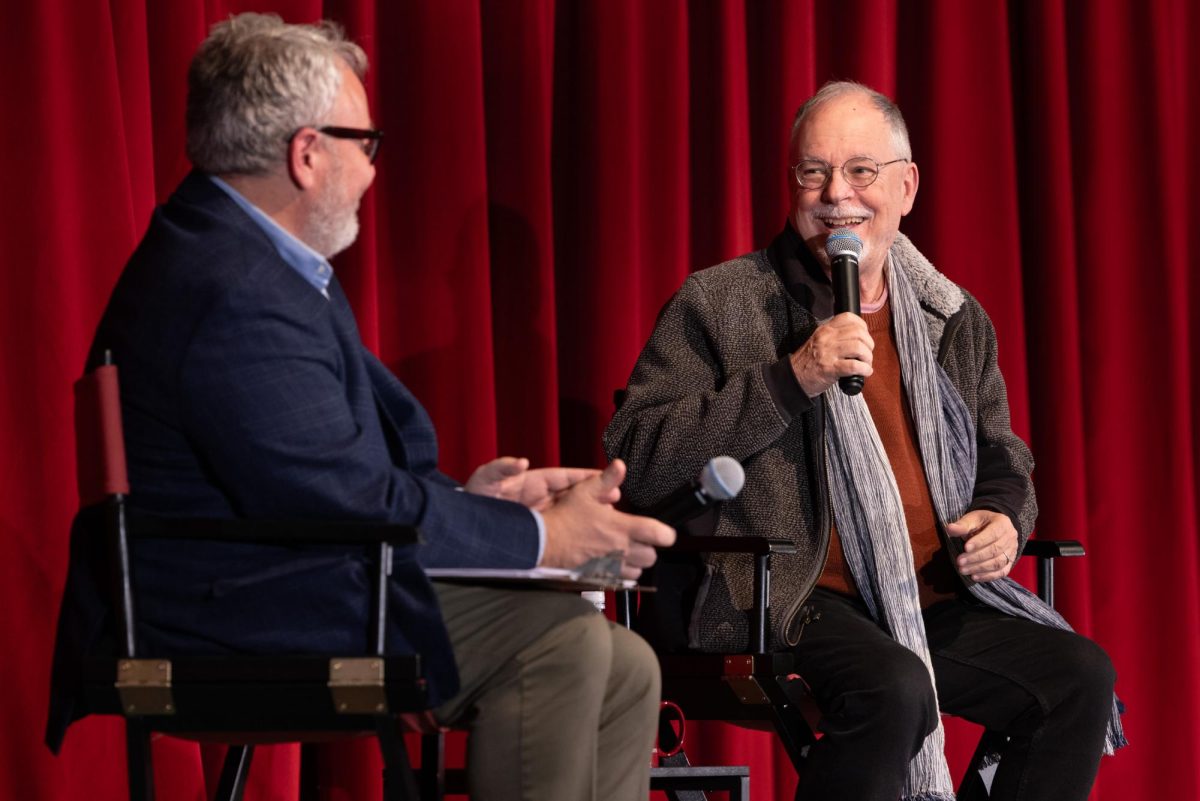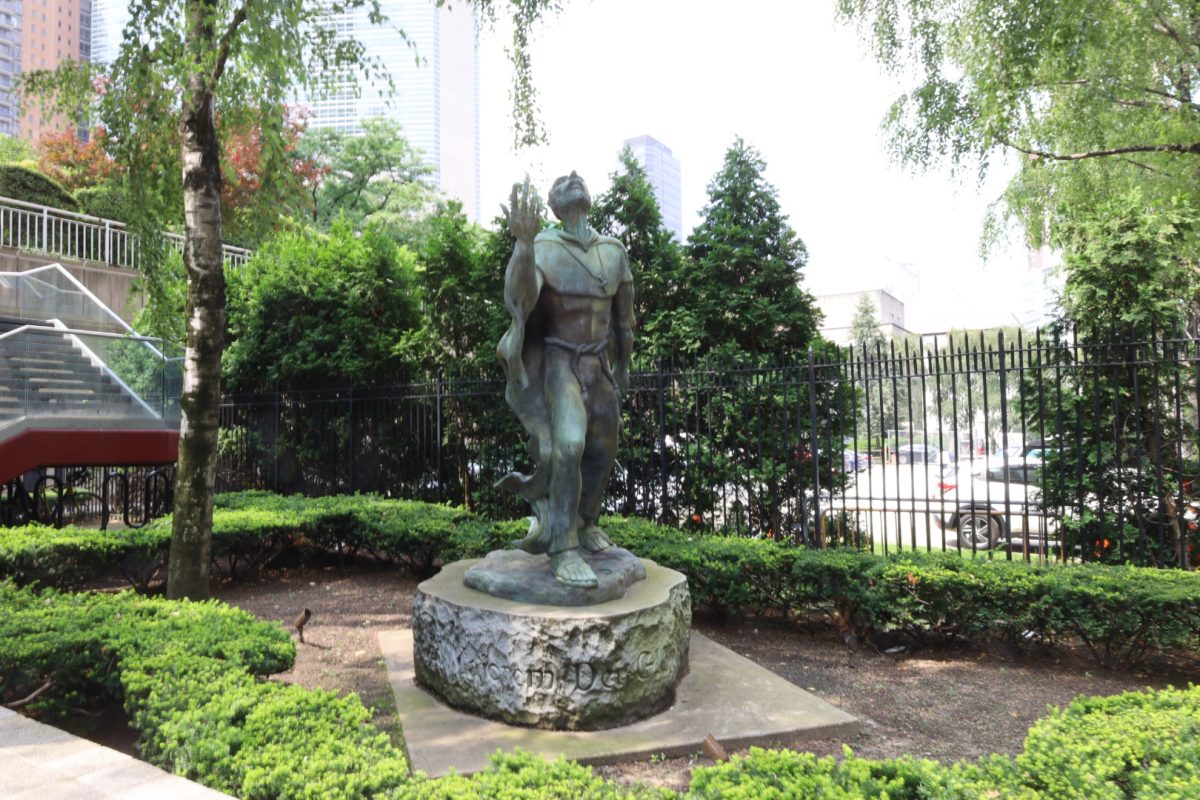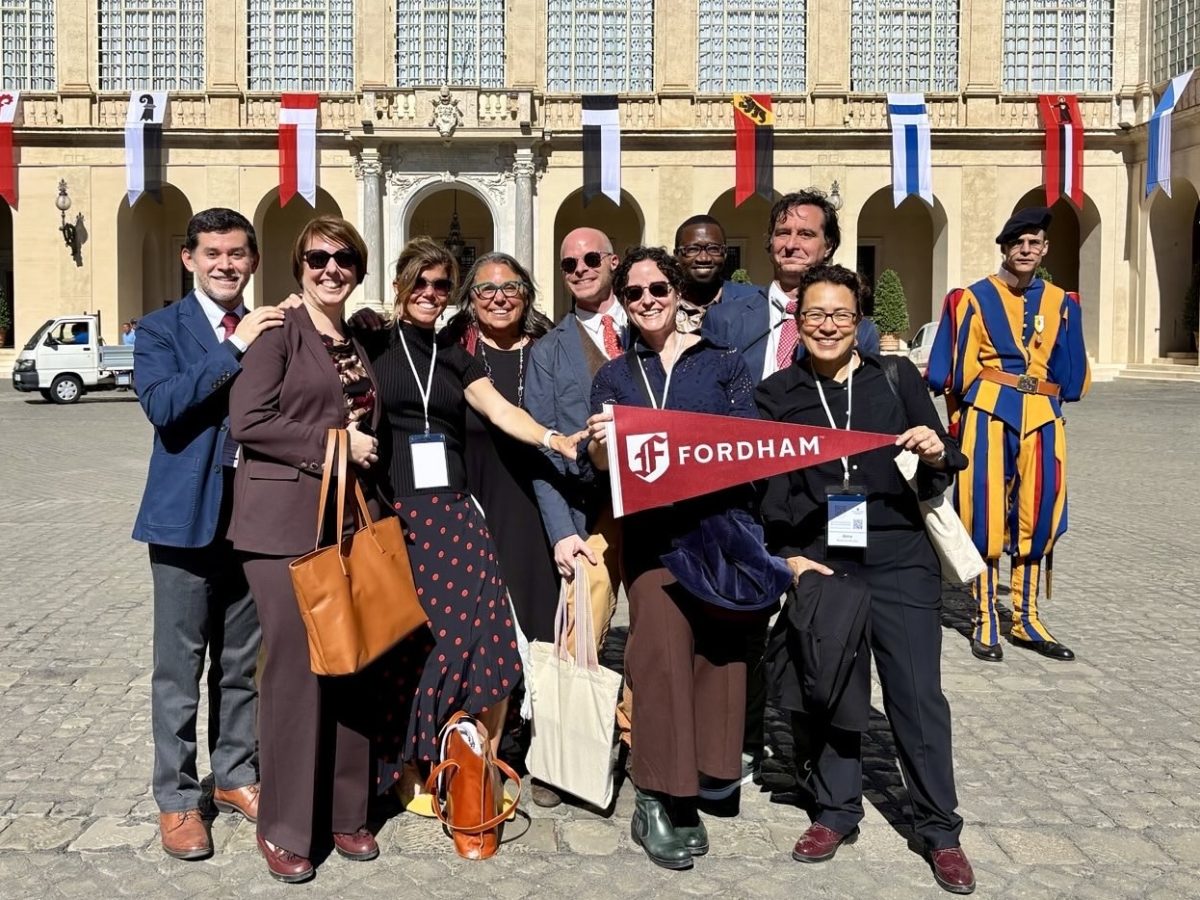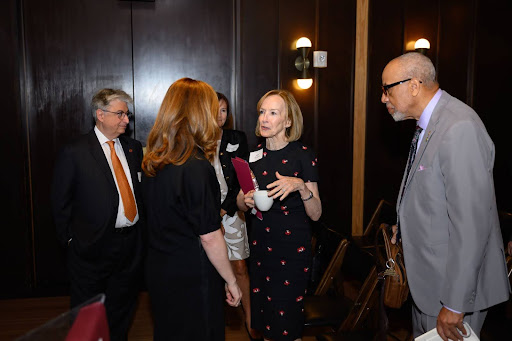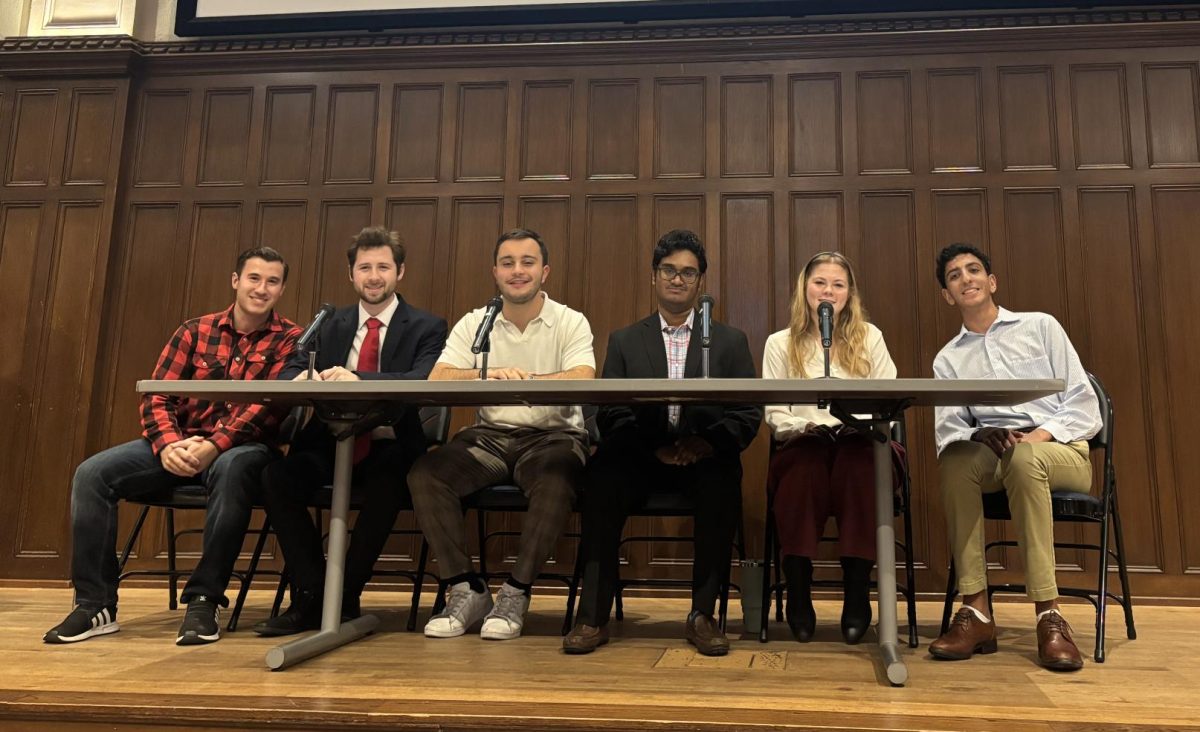By Joe Vitale, Katie Meyer & Laura Sanicola
During its budget day for Spring 2015, United Student Government’s Budget Committee allocated close to $414,000 to almost 80 student clubs and organizations.
The allocations are used by clubs to fund events, run programs, lead trips and host guests, among other costs.
As many student leaders have learned — or, in some cases, are in the process of learning — a club’s budget allocation can determine the success of a club for a given semester, unless it is successful in the appeals process. Without advertising funds, event attendance can suffer. Without programming funds, the quality of club events can decrease, along with its student support.
After a review of the budget report, which was prepared by the Committee Chair, Kara Norton, FCRH ’15, The Fordham Ram found some clubs fared well in the budgeting process, sometimes receiving 100 percent — in one case, 102 percent — of their requested sums. Other clubs, however, were not as fortunate. Many received just a fraction of what they requested.
In all, close to $760,000 was requested by the university’s 77 clubs, and 55 percent of all requests were fulfilled by the committee, which consists of nine students and a non-voting chair.
Though it outlines the budget breakdown for the semester, the committee’s 27-page report provides no explicit explanation as to why some clubs fared better than others.
A sharp contrast between requests for Spring 2015 and semesters past, however, paint a clear image of why the process brought cuts to a number of campus clubs and organizations.
In Fall 2014, clubs and organizations requested more than $222,000 and the committee was able to approve nearly 70 percent of requests.
The amount requested in Spring 2015, however, was nearly double the amount requested in the semester prior. The committee allocated money for only a third of requests.
In the past five semesters, the amount requested did not exceed $400,000.
This comes after a raise in the Student Activities Fee, from which the money for club budgeting comes. The fee was raised following a successful campaign last year by the budget committee, resulting in a raise to $135. The fee had not been raised in the past 10 years.
The Fordham Ram in an editorial (Vol. 95 Issue 13) endorsed a raise in the activity fee. Calling extracurriculars a necessity of the college experience, the editorial stated that the $15 increase was a small price to pay for students.
But a spike in requests forced the committee, which included Chairperson Norton, Thomas Roemer, GSB ’16, Anisah Assim, FCRH ’16, Melanie Falk, GSB ’15, Michael Billotti, GSB ’15, Aric Sethre, GSB ’18, Cara O’Brien, GSB ’18, Daniel Stroie, GSB ’17, and Michael Akon, GSB ’17, to deny funds to a number of clubs, according to the committee’s budget report for the semester.
The report details organization request, approval, sanction and allocation amounts. The report also breaks down the money allocated to referendum clubs. Reasons for denial of funds, however, are not listed, though sanction amounts are provided.
In all, organizations were sanctioned nearly $16,000. The committee typically cites a number of reasons for sanctions, ranging from misprinted dates on official forms to late submissions.
The Ampersand, for example, was sanctioned a quarter of its budget and Finance Society and Fordham Flava were each sanctioned 15 percent.
A significant portion (more than half) of the allocations were granted to referendum clubs, which are defined, according to the Student Activities Budget Committee Guidelines, as clubs that “spend a consistent amount each semester and have proven to be responsible with their allocated funding.”
Referendum clubs for Spring 2015 include Fordham University Emergency Medical Services (FUEMS), Global Outreach (GO!), Mimes and Mummers, Debate Society and Campus Activities Board.
These clubs are not required to disclose their annual spending, though other clubs are required to provide documentation of their spending when submitting their budget packets each semester.
A number of referendum clubs received the entirety of their requests.
CAB, which programs ClubLib and Spring Weekend Concert, among other events, received $174,000 — the same amount it requested. FUEMS and GO! also received 100 percent of their requests, equaling $25,000 and $16,110, respectively. Fordham Concert Choir received 102 percent of its request, totaling $6,950.
A handful of referendum clubs received less than requested, however. The Ampersand was allocated 68 percent of its requested amount, though the publication also received a 25 percent sanction. In addition, the Debate Society received 69 percent of its requested amount.
The report also makes clear the breakdown of allocations based on club types.
Programming groups were allocated nearly 45 percent and publication groups received about 6 percent of the entire budget. Service clubs were given almost 15 percent and 3 percent was allocated to academic groups. Cultural clubs were allocated 6.5 percent, while performing groups were allocated a little over 8 percent of the budget.
The Fordham Ram, which is not a referendum club, requested $18,428.70 and received nearly 70 percent of that amount. It was sanctioned 10 percent.
Some of the lowest budgeted groups were campus political clubs, including the College Democrats and College Republicans. College Democrats requested more than $25,000 and the College Republicans nearly $47,000. Each group received $100 for the year, according to the report.
While political groups hold weekly meetings, they traditionally host high-profile speakers. Last year, speakers included Ezra Klein and Kimberley Strassel, both prominent journalists who drew sizable crowds.
In years past, Hillary Clinton, Karl Rove and Newt Gingrich, among many others, have been featured as guests. Without the money to compensate speakers, it is unlikely students will see a speaker brought to campus by a political group this semester.
Several other clubs received significantly less funding than had been requested, according to the report.
Academia Hispana, which requested more than $7,500, received 5 percent of its request.
The b-Sides, which requested upwards of $850 dollars, received less than $50 in total for the Spring semester.
Fordham Political Review, one of the five publications on campus, requested more than $27,000 and received 22 percent of its requested amount. It did not receive any sanctions.
A handful of clubs, according to the report, initially received no funding for Spring 2015, including Flipside, Fordham Experimental Theatre, Fordham Flava, Fordham University South Asian Entity, Images, Operation Dreamcatcher, Polish Cultural Exchange, Project Sunshine, Sláinte: Fordham Irish Dance and the Satin Dolls.
While ten new clubs were approved this year, including Pet Advocacy for Underprivileged Survivors, Images, Social Enterprises Club, Active Minds and Model U.N., none were allocated a significant amount of money.
Allocations for the semester are not final, however. The committee hosts open weekly meetings to consider appeals for funds.
On Jan. 14, approximately a dozen clubs applied for additional funding for a total of seventeen events, according to agenda and minutes reports posted on the committee’s website. No money, however, was allocated due to the lack of budget money available.
During the second appeals meeting of the semester, other clubs were more fortunate.
Fordham Flava received over $1,000 to fund its annual showcase and El Grito de Lares was granted over $8,000 for its 23rd annual Latin Gala artist. In a budget appeal, The Satin Dolls, which originally received no funding for the Spring semester, requested $3,419.40 and received the full amount in a unanimous vote.
The following week, on Jan 28., Mock Trial requested $4275.15 for an allocation and received $4124.69.



































































































































































































